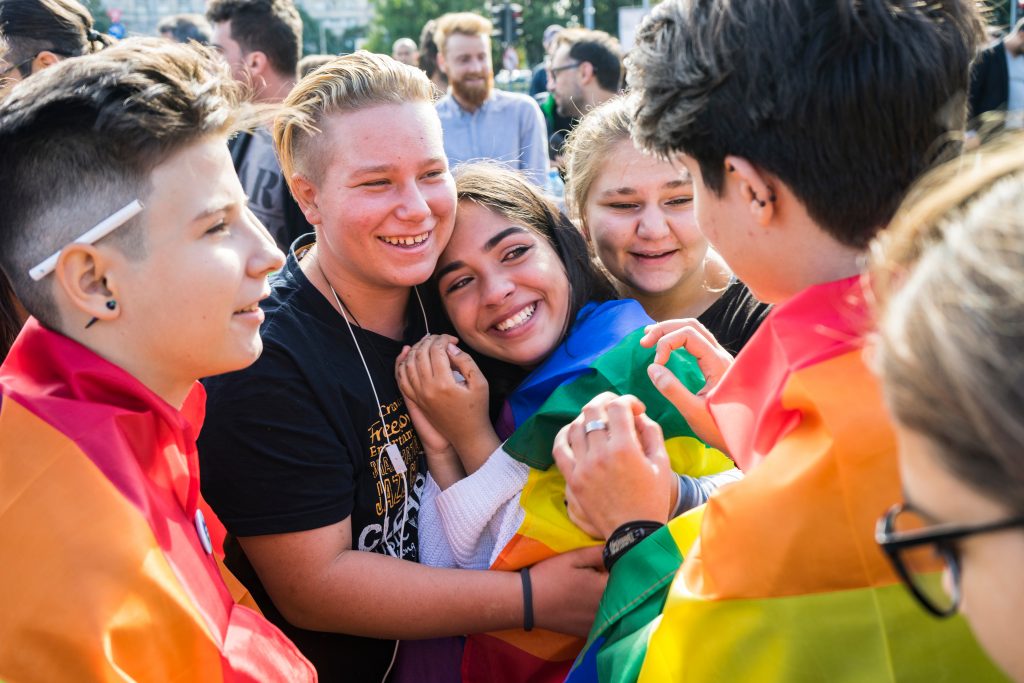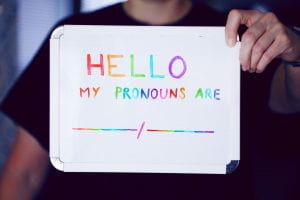When it comes to children, parents almost always have full control over the healthcare received and how its administered. With the exception of some Jehovah’s Witness’s cases, abortion cases, and court-tied decisions, parent’s typically have the final say so when it comes to the healthcare treatment that a child may take on. While at times this level of parental jurisdiction can prove problematic, when there is a discrepancy between what a child wants and what the parents want, this jurisdiction in the case of those aiming to help their children receive gender-affirming care is becoming more difficult.

Gender-Affirming Care & Gender Dsyphoria
According to the Trevor Project, more than half of trans and non-binary youth consider suicide annually. This striking statistic appears to be remedied by the the reception of gender-affirming care. Gender-affirming care is defined by the World Health Organization as care that “support[s] and affirm[s] an individual’s gender identity” when it conflicts with the gender identity assigned at birth. For those below the age of 18, this care rarely involves the use of surgery. Instead, puberty blockers, which delay the onset of puberty, and hormone therapy, which helps induce physical characteristics that align with their gender identity, are used to help minors work against gender dysphoria. Gender dysphoria is explained by the American Psychology Association to be “psychological distress” rooted in a discrepancy between gender assignment and gender identity. This condition is associated with high rates of mental health conditions and suicide. As such, the reception of gender-affirming care by children has the potential to address gender dysphoria and lead to better health outcomes for trans and non-binary children.
Preventing access to this life-saving care can have dangerous effects, but that’s exactly what proposed and brainstormed bills in several states have the potential to do. The rationale behind such bills varies with voices from Texas likening gender-affirming care to child abuse and with other states claiming that children aren’t ready to make such important decisions regarding their bodies. The interesting part in these bills is where the penalty falls. Both providers and parents are at the mercy of state employees and educators if they seek to either perform or connect the child with gender-affirming care. The irony is that in most cases, parents are needed to consent to medical care and that providers are encouraged to align with parental wishes. Parents have to consent to their children receiving vaccines. If a parent or guardian decides to go against the standards for recommended care, then the pediatrician must oblige. In the case of standards around gender-affirming care, the American Academy of Pediatrics and the American Association of Medical Colleges has made clear that there are criteria to determining whether a child should receive care and that gender-affirming care is the standard of care if these criteria are met.

Exploring a Right to Healthcare
In this sense, a denial of a child’s access to arguably life-saving and parentally sanctioned treatment goes against a right to health care. Alabama Rep. Neil Rafferty, the singular openly gay member of the Alabama Legislature, spoke to the matter before his state’s bill was ratified. “Y’all sit there and campaign on family being the foundation of our nation … but what this bill is doing is totally undermining that. It’s totally undermining family rights, health rights and access to health care.”
While healthcare as a right remains uncodified in the US, the United States has signed on to multiple international agreements, most recognizably the Universal Declaration for Human Rights, and is held to international suspicion and disfavor should it move towards legislation that hinders a human right and targets minorities. Whether this international judgement holds sway over the United States politically and legislatively is one thing, but for a country viewed to be a global hegemony, a stand against what can be perceived as a violation of fundamental human rights and protections for children is jarring.
Additionally, some bills, like Alabama’s, have enfolded restrictions and impositions on on trans children. For example, under an extension of the bill, students in Alabama must use the restrooms that align with the gender assigned at birth making education an uncomfortable environment for trans children.

As such, an attack on healthcare can operate as an entryway into further impositions on trans rights that have been long hard fought and won for years.
Though there’s no telling what the future holds for trans children, there are still ways to support them.
1. Donate to LGBTQ+ affirming spaces and support networks like The Trevor Project.
2. Write letters to your state representatives relaying your support of LGBTQ+ children and their ability to have access to quality, life-saving healthcare and urging their reconsideration of a politician’s support for legislation that may prevent said access.
3. Check in with people in your life who may be affected by such a decision.
